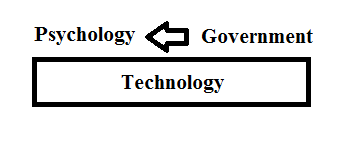Welcome to PTG Facts,
an interactive research paper!

Image credit: www.pngmart.com

Computer technology has advanced exponentially within the last two decades, becoming more accessible to the public. This increased accessibility gives the public the opportunity to explore the Internet and its growing abundance of many types of information and methods of communication from personal devices such as laptops, tablets, and phones, unlike that of generations past. At face value, a user’s journey to find out new information, or upload their own thoughts or pictures online, carries the facade of being completely private. Internet Service Providers (ISPs), websites, apps, and services such as FaceBook, Google, and Whatsapp, collect user data during use of their products, and in some cases during the use of other products, which gets stored on large company servers, as opposed to locally on the user’s device. The impact of the major decrease in the public’s privacy makes the topic of data protection and privacy gravely crucial to discuss. In this project, the question of how Russia's legislation has affected the minds of its people will be addressed in hopes of making the relationship between technology, psychology, and government clearer and more accessible to the public.